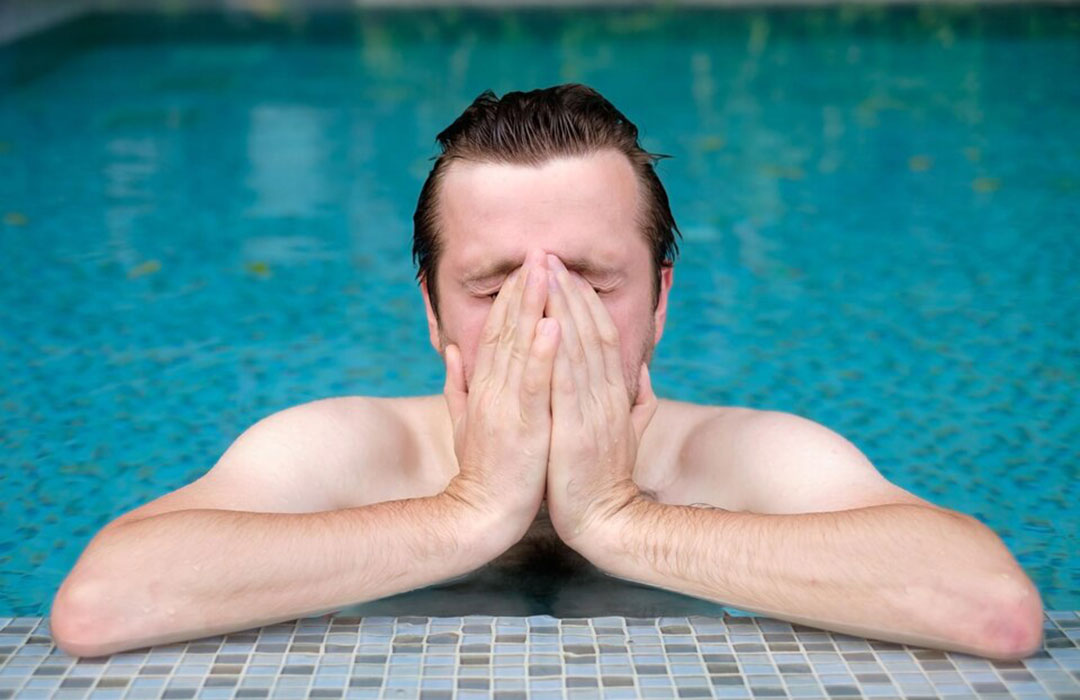Introduction
Why does chlorine make me so tired? Have you ever wondered why you feel tired after swimming in a chlorinated pool? Many individuals experience fatigue and drowsiness after a refreshing swim, leaving them questioning the reason behind this phenomenon. In this article, we will explore the factors contributing to feeling tired after swimming in chlorinated water and shed light on the potential causes. So, let’s dive in and uncover why chlorine makes you feel so tired.
The Science Behind Chlorine and Fatigue
How Chlorine Works in Pools
To understand why chlorine may make you feel tired, it’s essential to comprehend how chlorine works in swimming pools. Chlorine is a chemical commonly used to sanitize pool water and eliminate harmful bacteria and microorganisms. When added to water, chlorine forms hypochlorous acid, an effective disinfectant.
Chloramines: The Culprit
The fatigue-inducing effects of chlorine are primarily attributed to the formation of chloramines. When chlorine combines with organic matter like sweat, urine, and body oils, it creates chloramines. These chloramines can give off a strong odor and have been linked to various health issues, including respiratory problems and eye irritation.
Chloramines and Fatigue
Chloramines affect the air quality around the pool and can also impact swimmers’ energy levels. When swimming in a chlorinated pool, you may inadvertently inhale chloramines in the air or absorb them through your skin. These chloramines can irritate your respiratory system and potentially lead to fatigue and tiredness.
Factors Influencing Fatigue in Chlorinated Pools
Indoor Pools vs. Outdoor Pools
The environment in which you swim can affect the degree of fatigue you experience. Indoor pools tend to have higher levels of chloramines due to limited air circulation. The trapped chloramines in an indoor pool can lead to more significant respiratory irritation, potentially amplifying feelings of tiredness. On the other hand, outdoor pools typically have better ventilation, allowing chloramines to disperse more efficiently.
Pool Maintenance and Chlorine Levels
The pool’s maintenance practices and chlorine levels can also influence the fatigue-inducing effects. Pools with inadequate chlorine levels or irregular maintenance routines may have higher concentrations of chloramines, increasing the likelihood of fatigue among swimmers. Proper pool maintenance, including regular testing and maintenance of chlorine levels, can help minimize the formation of chloramines and reduce fatigue.
Tips to Reduce Fatigue After Swimming
While the effects of chlorine-related fatigue vary from person to person, there are steps you can take to mitigate tiredness after swimming in chlorinated pools.
Shower Before and After Swimming
Showering before and after swimming can significantly reduce the amount of organic matter, such as sweat and body oils, that mixes with chlorine in the pool. By rinsing off before entering the pool, you minimize the formation of chloramines. Showering after swimming helps remove any residual chlorine or chloramines from your skin, further reducing potential fatigue.
Use Eye and Nose Protection
Wearing goggles and a nose clip while swimming can protect your eyes and respiratory system from direct contact with chlorine and chloramines. These accessories create a barrier and reduce the irritants you inhale, potentially decreasing fatigue.
Choose Outdoor Pools or Well-Ventilated Areas
Opting for outdoor pools or swimming in well-ventilated areas can help minimize exposure to high concentrations of chloramines. The better air circulation in these environments allows chloramines to disperse more effectively, reducing their potential impact on your energy levels.
Stay Hydrated
Dehydration can exacerbate fatigue, so staying hydrated before, during, and after swimming is crucial. Drinking an adequate amount of water helps flush out toxins and can aid in minimizing the effects of chloramines on your body.
Take Breaks and Pace Yourself
If you notice fatigue during your swim, listening to your body and taking breaks when needed is essential. Overexertion in the pool can lead to increased fatigue. Pace yourself and allow rest periods to maintain energy levels and prevent excessive tiredness.
Consider Alternative Pool Options
You may want to explore alternative pool options if you consistently experience significant fatigue after swimming in chlorinated pools. Saltwater pools, for example, use a salt chlorine generator to produce chlorine naturally, resulting in lower chloramine levels. Natural swimming ponds or freshwater lakes can also provide a chlorine-free swimming experience.
FAQs
-
Why does chlorine make me so tired?
Chlorine can lead to the formation of chloramines, which, when inhaled or absorbed through the skin, can cause respiratory irritation and fatigue.
-
Can showering before and after swimming help reduce fatigue?
Yes, showering before and after swimming can minimize the amount of organic matter that mixes with chlorine, reducing the formation of chloramines and potential fatigue.
-
Are all pools equally tiring?
No, the fatigue-inducing effects of chlorine can vary depending on factors such as pool maintenance, ventilation, and the presence of organic matter.
-
Are there alternatives to chlorinated pools?
Yes, Saltwater pools, natural swimming ponds, and freshwater lakes offer chlorine-free or lower-chloramine swimming options.
-
Does staying hydrated help with fatigue after swimming?
Yes, proper hydration can aid in flushing out toxins and reducing the effects of chloramines on the body, potentially minimizing fatigue.
-
Should I take breaks while swimming to prevent fatigue?
Yes, taking breaks and pacing yourself can help maintain energy levels and prevent excessive tiredness during swimming sessions.
Conclusion
Feeling tired after swimming in a chlorinated pool is a common experience for many individuals. The formation of chloramines, resulting from the interaction between chlorine and organic matter, can contribute to respiratory irritation and fatigue. By understanding the factors influencing fatigue in chlorinated pools and implementing preventive measures like showering before and after swimming, using eye and nose protection, and choosing well-ventilated areas, you can minimize the impact of chloramines and reduce post-swimming tiredness. Remember to stay hydrated and listen to your body, taking breaks when necessary. If fatigue persists or becomes a significant concern, exploring alternative pool options may be worth considering. Enjoy your swim while keeping fatigue at bay!




